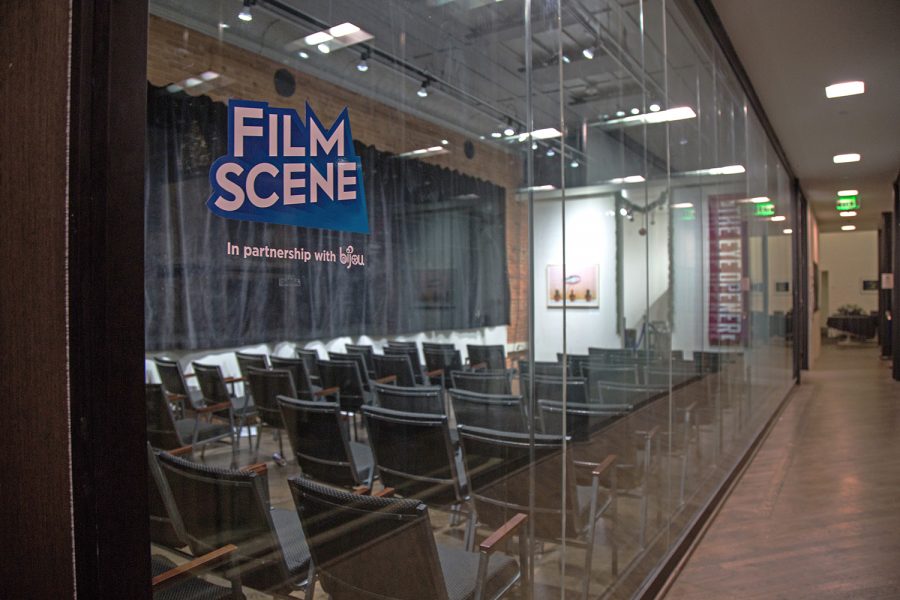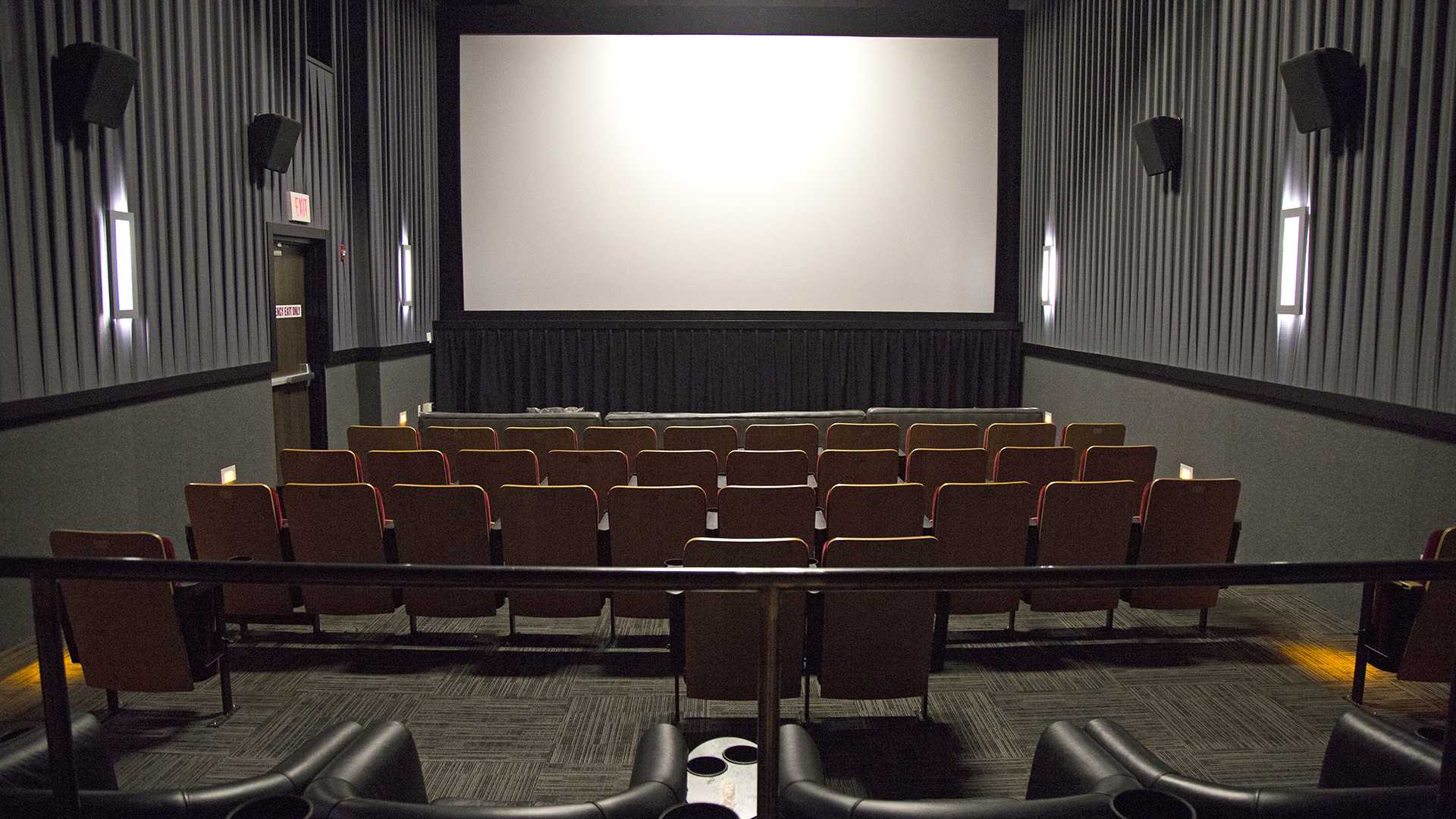Filmscene to screen Stanley Kubrick’s iconic journey through space 50 years after its release
For the 50th Anniversary of 2001: A Space Odyssey, FilmScene will host a special showing.
September 5, 2018
In 1968, it seemed as if the world was on the brink of destruction. With the Cold War’s essence of fear and anxiety stretching to every corner of the map, the boundless dread and horror of the Vietnam War, and the assassinations of America’s hopeful idealists, Martin Luther King Jr. and Sen. Robert Kennedy, few were focused on a future not tormented by nuclear war and self-destruction. Unless your name was Stanley Kubrick.
It’s been 50 years since the captivating auteur filmmaker crafted together his most iconic and influential film, 2001: A Space Odyssey, a journey that projected life outside of Earth by exploring space with the help of artificial intelligence and man-made interplanetary spacecraft.
To celebrate the director and his film, Iowa City’s local arthouse cinema, FilmScene, 188 E. College St., will screen the film in its entirety on three occasions: 8:30 p.m. Friday, 2 p.m. Saturday, and 8 p.m. Sept. 10.
FilmScene programming director Rebecca Fons said the theater was unable to screen the movie on the film’s actual 50-year anniversary in April because its initial release was only for theaters that projected movies in 70 mm. But now, with a general theatrical release, she said, without question, FilmScene snagged it right away.
“Even though there have been so many things influenced by 2001, basically, the entire science-fiction genre as we know it, I still have never seen anything like it,” Fons said. “It just leaves you thinking.”
Alex Denison, a Ph.D. candidate and former instructor in film studies at the University of Iowa, said that because of its lack of conventions, part of what makes 2001 still relevant today is how it unusually appeals to all ends of the spectrum.
One example being that at the height of 1960s counterculture, MGM studios, which funded the film, took advantage of the news that many teenagers — and others — were viewing the movie high on drugs. As a result, Denison said, MGM advertised the movie as an “ultimate trip,” basically encouraging viewers to attend high.
The movie has lived beyond the year of its release, and ripples of its journey are still felt throughout the film medium, most notably being science fiction.
“Every science-fiction film after 2001: A Space Odyssey has to pay homage in some way, shape, or form because 2001 broke the mold and remade the mold of what science fiction could be,” Denison said.
Most notably being that before the film, most science-fiction movies were “B movies” and covered the subject matter without addressing the accuracy of the science. With 2001, Denison said, Kubrick created a subgenre of science fiction, “hard sci-fi,” which strived for being the most realistic story possible, and it shows on 2001 with astrophysicists on the set and filmmakers still looking to Kubrick’s space journey for inspiration.
Looking back on the film, one might consider it timeless in how it achieves success by breaking the popular film conventions of its time, and, as the epic journey evolves, still standing alone atop the hill with its obsessive and beautiful craft, long, drawn-out takes, and a lack of character depth — a story about humanity told not by the humans on screen but by the visuals that fill it up.
However, UI Film Studies Professor and Interim Department Chair Steven Ungar takes a different approach when considering the film’s legacy and where it belongs in film lore.
“It’s a time capsule of how the ’60s saw the 2000s,” he said. “And almost 20 years after 2000, it’s a film that still keeps us asking the questions that haven’t really been answered 20 years after the date.”
With those questions left unanswered, audiences continue to revisit the film, trying to make sense of its ambiguous themes and meanings and what it says about humanity. Ungar said the beauty behind its enigmatic nature and Kubrick himself is his ability to provoke responses.
“I think 2001 is probably the broadest provocation, because it shows what might be happening to man over the coming 40 years, and it’s still happening now with robots, artificial intelligence, and life outside our universe,” Ungar said.
Fons said she hopes the screenings attract a mixture of people, from those who have never seen the film to those who adore it and to many who have seen it, just not on the big screen. But more importantly, she hopes the film opens eyes to its influences and questions.




